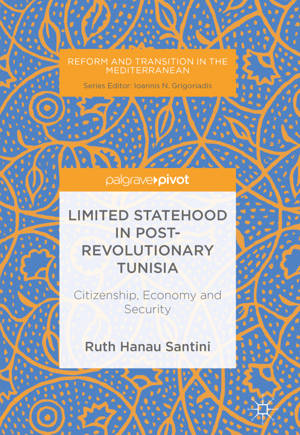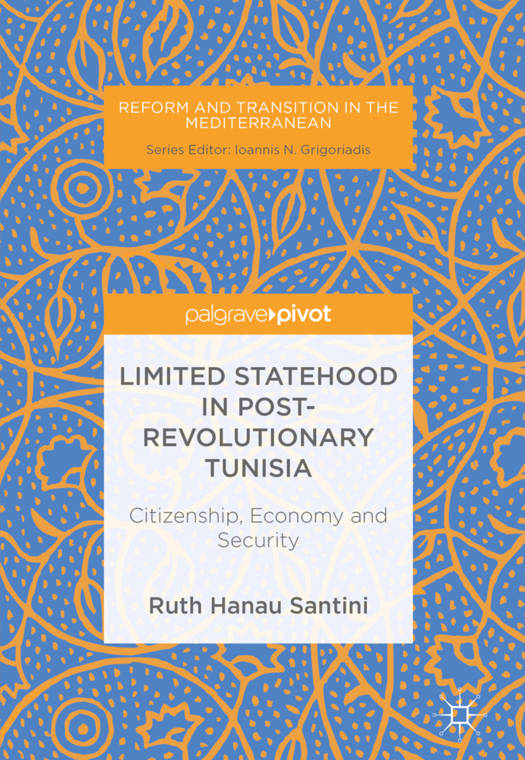
- Afhalen na 1 uur in een winkel met voorraad
- Gratis thuislevering in België vanaf € 30
- Ruim aanbod met 7 miljoen producten
- Afhalen na 1 uur in een winkel met voorraad
- Gratis thuislevering in België vanaf € 30
- Ruim aanbod met 7 miljoen producten
Zoeken
Limited Statehood in Post-Revolutionary Tunisia
Citizenship, Economy and Security
Ruth Hanau Santini
€ 52,95
+ 105 punten
Omschrijving
This book explores the complexity of the only widely-acclaimed successful democratic transition following the Arab uprisings of 2010-2011 - the Tunisian one. The country's transformation, in terms of state-society relations across several analytical dimensions (citizenship, security, political economy, external relations), is looked at through the prism of statehood and of limited statehood in particular. The author illustrates how the balance of power and the relationship between the state and societal forces have been shaped and reshaped a number of times at key critical junctures by drawing on examples from very different policy arenas. The critical reading of statehood speaks beyond the Tunisian case study as notions of limited statehood can be applied, with different degrees of intensity and in some dimensions more than others, to most political systems in the Middle East and North Africa. Accessible for students, academics and professionals alike, the book illuminates the complexities and challenges of a successful, albeit still fragile, transition.
Specificaties
Betrokkenen
- Auteur(s):
- Uitgeverij:
Inhoud
- Aantal bladzijden:
- 119
- Taal:
- Engels
- Reeks:
Eigenschappen
- Productcode (EAN):
- 9783319744056
- Verschijningsdatum:
- 23/03/2018
- Uitvoering:
- Hardcover
- Formaat:
- Genaaid
- Afmetingen:
- 148 mm x 210 mm
- Gewicht:
- 308 g

Alleen bij Standaard Boekhandel
+ 105 punten op je klantenkaart van Standaard Boekhandel
Beoordelingen
We publiceren alleen reviews die voldoen aan de voorwaarden voor reviews. Bekijk onze voorwaarden voor reviews.











